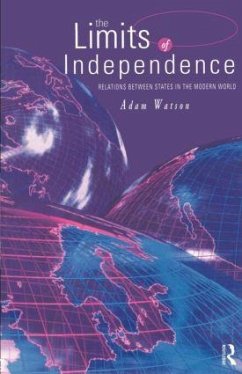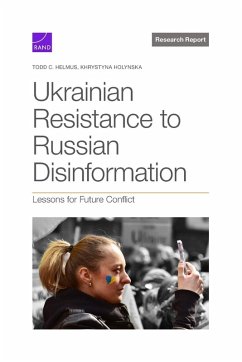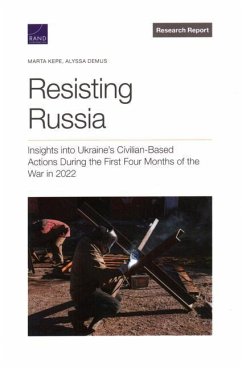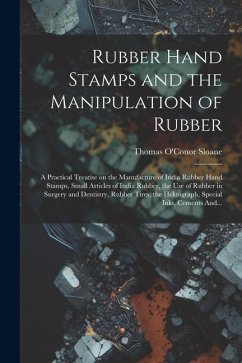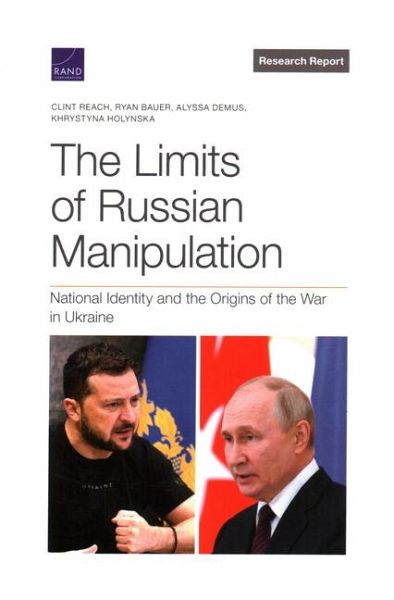
The Limits of Russian Manipulation
National Identity and the Origins of the War in Ukraine
Versandkostenfrei!
Versandfertig in über 4 Wochen
25,99 €
inkl. MwSt.

PAYBACK Punkte
13 °P sammeln!
Russia's manipulation of Ukraine in the post-Soviet period, which culminated in a large-scale invasion in 2022, demonstrated that Russia was willing to resort to all means necessary to secure a regional sphere of influence that included Ukraine. But events could have turned out differently. Russia and Ukraine share historical, cultural, religious, and interpersonal ties. Russia in the early 1990s appeared to be on a path toward democratization and constructive relations with its neighbors and the rest of Europe. Many Ukrainians also saw their future as an independent country that was part of a...
Russia's manipulation of Ukraine in the post-Soviet period, which culminated in a large-scale invasion in 2022, demonstrated that Russia was willing to resort to all means necessary to secure a regional sphere of influence that included Ukraine. But events could have turned out differently. Russia and Ukraine share historical, cultural, religious, and interpersonal ties. Russia in the early 1990s appeared to be on a path toward democratization and constructive relations with its neighbors and the rest of Europe. Many Ukrainians also saw their future as an independent country that was part of a greater Europe in some form. Given the alignment of national interests in the early days of the post-Cold War era, conflict appeared far from inevitable. How did things go so wrong? Using the concept of national identity as a starting point, RAND researchers developed a framework in an effort to illuminate the underlying causes of Russian manipulation, Ukrainian resistance, and the Russia-Ukraine war.



